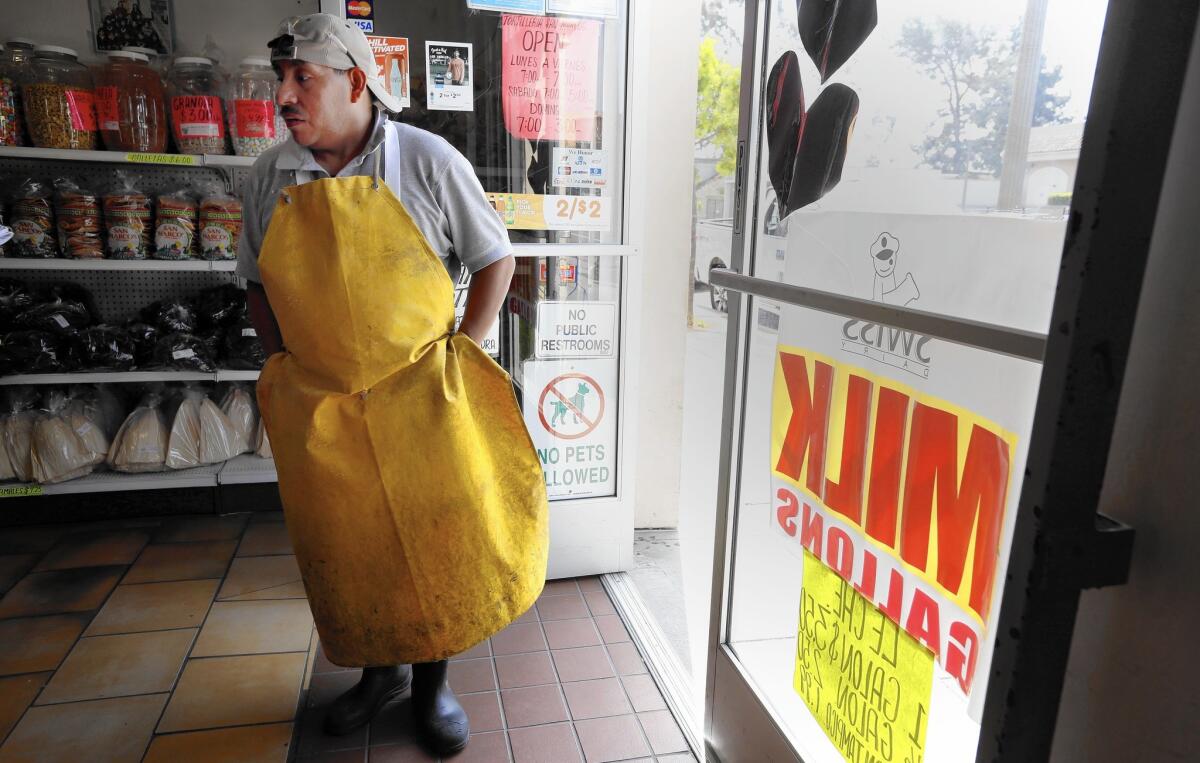Q&A: California’s $15 minimum wage gamble brings risks and potential rewards

A deal reached over the weekend could significantly boost California’s minimum wage, but it is also sparking debate about how the move would affect the economy.
What is the minimum wage in California?
Right now, it’s $10 an hour.
What would this deal do?
It would boost California’s minimum wage to $10.50 an hour next year and then gradually to $15 by 2022.
Join the conversation on Facebook >>
What are the poitics behind the deal?
A: It was reached after lawmakers were threatened with two union-sponsored initiatives that would have raised the minimum to $15 on faster timelines — one of which recently qualified for the Nov. 8 statewide ballot. Numerous statewide polls showed voters would approve such a hike, and Democratic presidential candidates Bernie Sanders and Hillary Clinton have both endorsed a union-led nationwide push for a $15 minimum wage.
How does this minimum wage proposal differ from what some cities have already done?
If the Legislature approves it, the $15 minimum wage deal would set a statewide standard at a time when unions and other groups have been demanding that local governments boost wages.
Los Angeles, San Francisco and San Diego are among the cities that have already agreed to increase the minimum wage over the next few years. But other municipalities have expressed little desire to join them, prompting some to wonder if businesses would move to avoid the higher pay requirements.
Backers of the state deal say it would end this patchwork approach and prevent the chaotic economic competition between cities that some have feared.
The proposal would create a “much more uniform” minimum wage, said Los Angeles County Supervisor Sheila Kuehl.
What has been the reaction?
Labor groups have generally hailed the idea, arguing the higher incomes will boost the economy by increasing spending power.
But some business owners said they would be hard pressed to increase wages -- especially in businesses with low profit margins.
Have there been studies of these issues?
Last year, L.A. County commissioned a survey of 1,000 businesses around the county as part of a larger report on a minimum wage boost.
The economists concluded that as a result of the wage increase, “many prices will increase, including those that lower-income households commonly face; wages will rise for those in minimum wage jobs that remain employed; employment opportunities for those at the bottom of the skills ladder will be diminished” and “employment growth will slow.”
A majority of businesses surveyed -- and 96% of those have minimum wage employees -- said they would likely raise their prices to make up for the increased labor costs.
Only 6% of the businesses overall said it was likely they would reduce the number of minimum-wage workers they employ as a result of the increased wage, but 19% of businesses with minimum wage workers said it was likely they would.
In the city of L.A., three different studies, one sought by labor, one by the Los Angeles Area Chamber of Commerce, and one by the city, drew sharply different conclusions about its economic effects, ranging from the ominous to the optimistic.
ALSO
Changes could add hundreds of millions of dollars to first 29 miles of bullet train
Pharmaceutical industry is lobbying hard against an L.A. County drug take-back proposal
More to Read
Sign up for Essential California
The most important California stories and recommendations in your inbox every morning.
You may occasionally receive promotional content from the Los Angeles Times.













